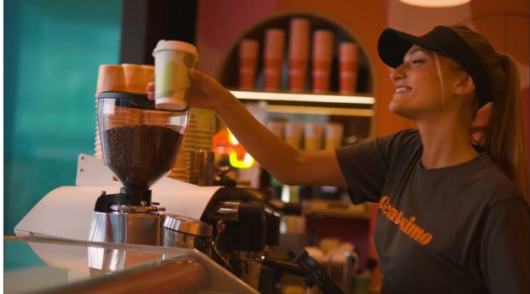Since its 2021 departure from major social media platforms, Lush Australia is doubling its focus on physical retail as a channel for education, community connection and values-driven commerce. By shifting its efforts from digital advertising to grassroots advocacy, the brand is recasting its physical stores as platforms for social impact and conscious engagement. This week, the brand launched its latest campaign for Plastic Free July: a limited-edition Waru bath bomb, with 75 per cent of sales p
s pledged to fund Sea Shepherd Australia’s 2026 beach clean-up initiative.
The fundraising goal is $40,000, explicitly allocated to organising a clean-up of the turtle-nesting beaches near Mapoon in Far North Queensland.
Jessielee Pearce, advocacy and activism executive at Lush Australia and New Zealand, told Inside Retail the campaign reflects the brand’s longstanding mission.
“This campaign stays true to what has always been Lush’s core mission, to leave the world Lusher than we found it. Globally, our stores have always been a space for activism and advocacy, standing up for the things that matter the most to us,” she said. “Most importantly, we build communities of people who care.”
The Waru bath bomb, named after the Tjungundji word meaning ‘turtle’, not only raises awareness but directly funds environmental action.
“We invest in our campaigns purely from an advocacy space, they are not to drive profit,” Pearce explained.
Stores as activist platforms
Lush’s bricks-and-mortar strategy plays a central role in how the brand activates around causes, with its physical spaces serving as both retail environments and advocacy hubs.
“We couldn’t do this without our bricks-and-mortar stores,” Pearce said.
“They give us a space where we can tell deeper brand stories that align with our values, and move beyond mere retail transactions to offer meaningful, immersive and interactive experiences,” she added.
Pearce reinforced that in today’s era heavily saturated by digital use, “you can’t underestimate the power of being in real life with like-minded people.”
“As a cosmetics company with campaigning at its heart, connection is something we value deeply. From personalised skincare recommendations to shared learning about important causes, these are the moments that our most loyal Lush customers return for,” she said.
Throughout July, Lush’s retail spaces across Australia and New Zealand will serve as education zones, offering not only the limited-edition Waru bath bomb but also sign-ups for future beach clean-ups and opportunities to learn more about plastic pollution affecting First Nations communities like the Tjungundji people in Far North Queensland.
Beyond the bath bomb
Since its inception, Lush has used its products as part of its protest efforts, aligning limited-edition items with global and local causes. Lush Australian campaigns have included:
A collaboration with Sea Shepherd in 2008 to protest shark finning near the Great Barrier Reef.
“All the Wild Things” in 2019–2020, which raised funds for wildlife rescue efforts during the bushfires.
A partnership with GetUp! during the 2016 federal election, distributing voting guides and campaigning on reef protection.
These initiatives have helped shape Lush’s reputation as a company that leverages its retail platform not only to sell but to serve.
“With each of our advocacy campaigns, we hope to set a standard for the responsibility that global brands have to protect the local lands in which they operate,” Pearce explained.
Currently, 43 per cent of Lush’s core product range is “naked” and sold with no packaging; the company estimates this has prevented nearly 14,000 tonnes of plastic waste since 2005.
Despite its wide customer base and youth appeal, Lush made a bold move in 2021 by quitting Instagram, Facebook, Snapchat and TikTok globally.
The decision was driven by growing concerns around mental health and the impact of social media algorithms, particularly on teenagers.
While Lush has maintained placeholder profiles, it has used them not to sell products but to protest. Campaign graphics have spotlighted statistics on teen anxiety and disordered eating linked to social media usage, effectively turning the platform against itself.
Instead of algorithm-driven content, Lush focuses on owned channels like newsletters, physical stores and its app to engage its audience.
Its approach stands in stark contrast to industry norms, reinforcing its image as a values-led brand unafraid to swim against the current.
Walking the walk
With the Waru campaign, Lush continues to connect physical retail, values-driven products and grassroots activism into one seamless offering.
“As consumers become more conscious of the brands they support, they’re looking deeper into the impact that brands have on the world – both good and bad,” Pearce said
“It matters more to people than it ever has before, and we’re proud to have been pioneering these beliefs since 1995.”
For Lush, that impact is a year-round strategy cultivated from every bath bomb, rising from the shop floor and surfacing wherever activism and retail collide.







